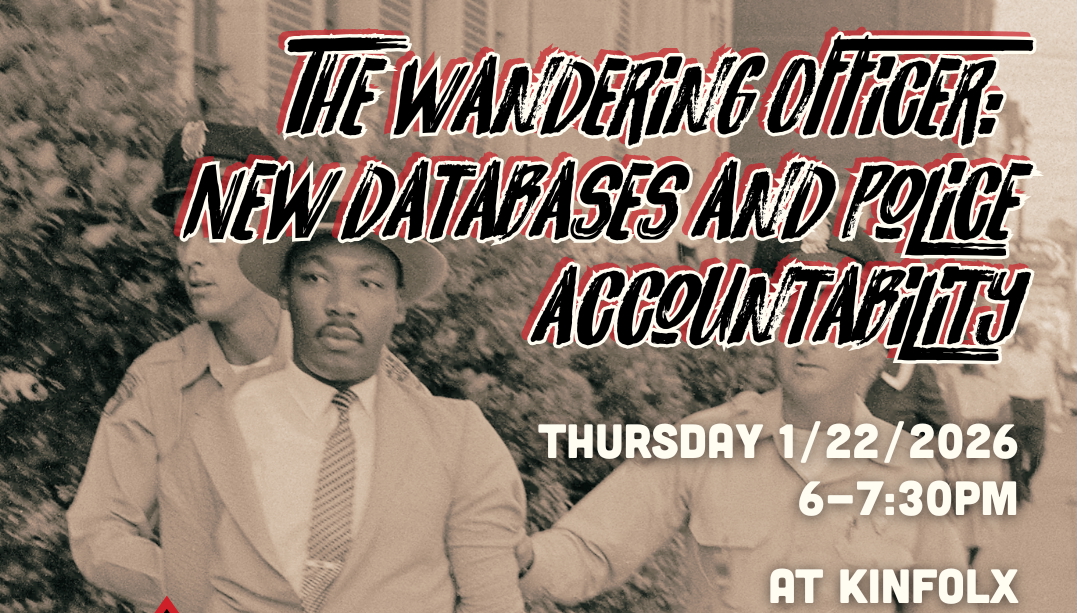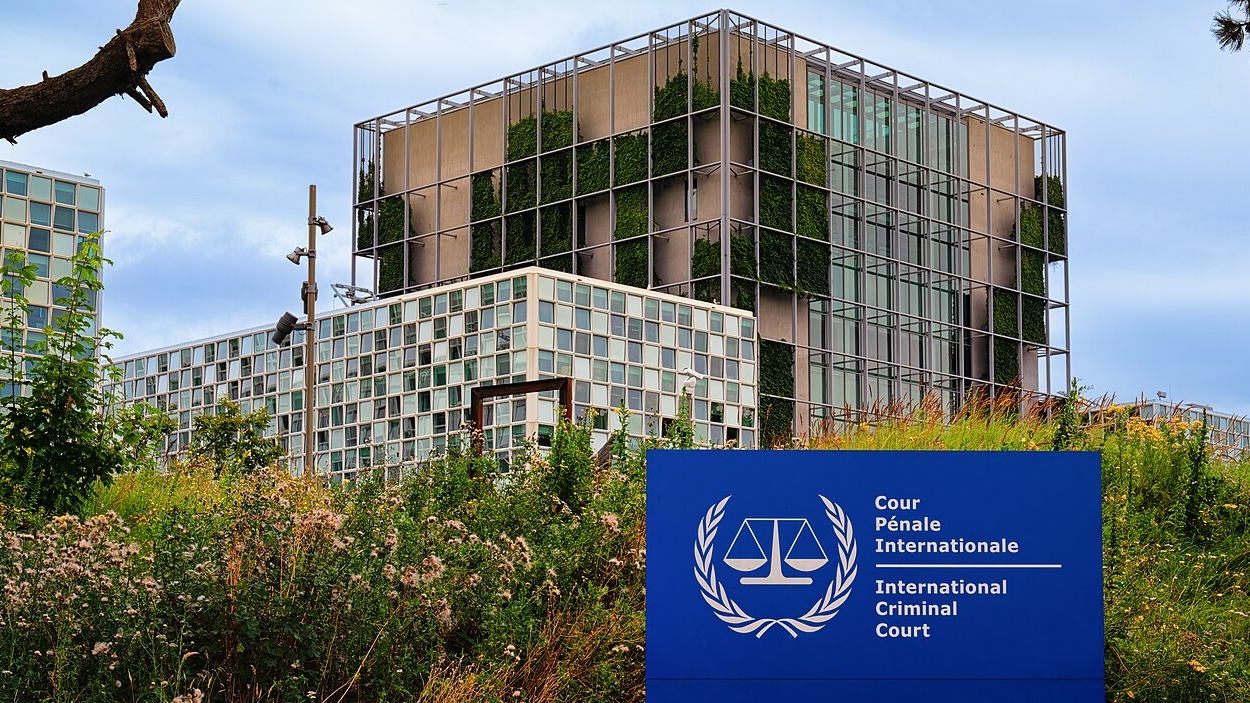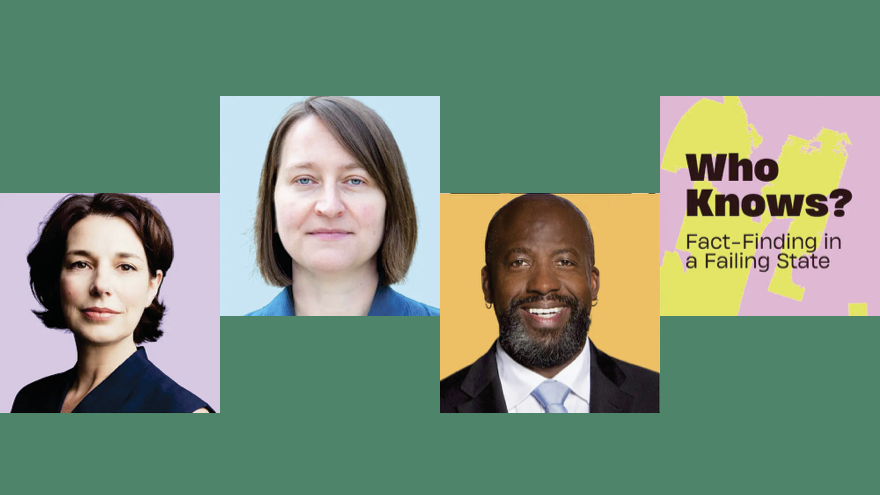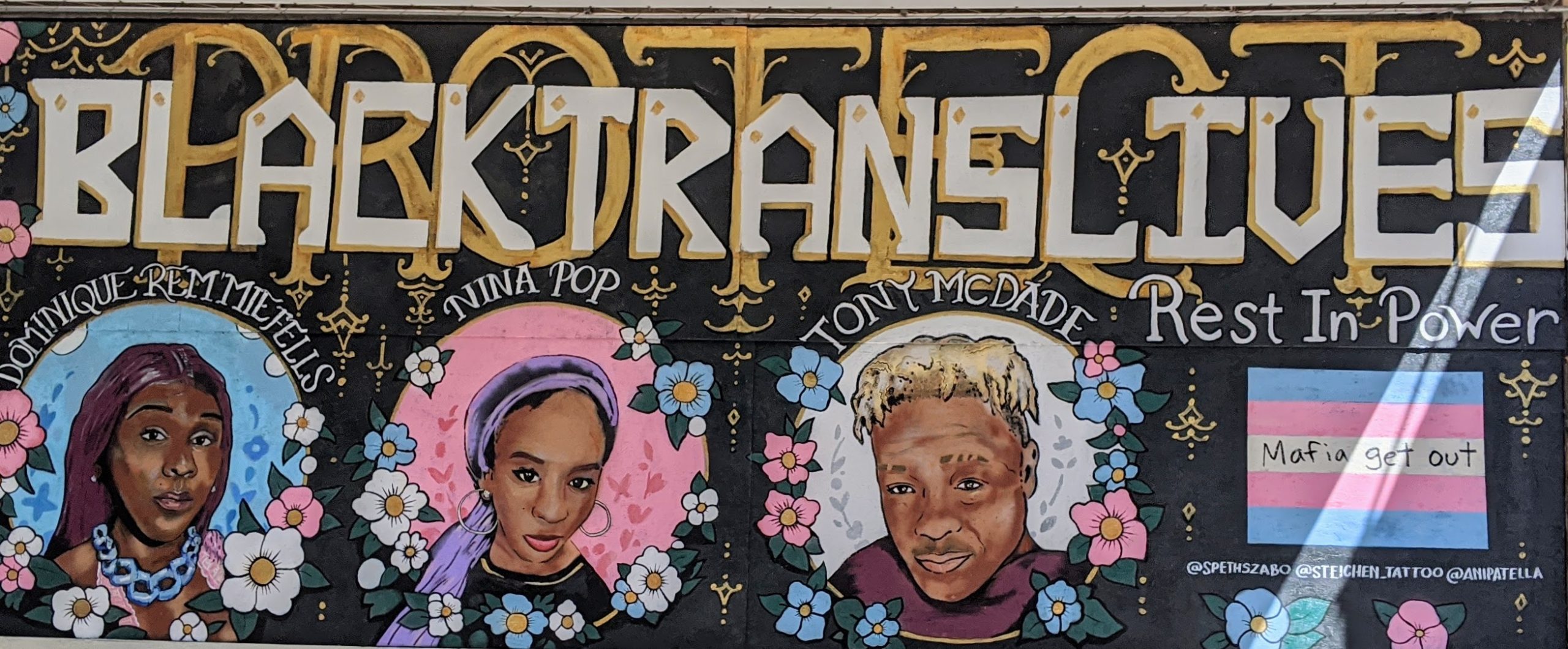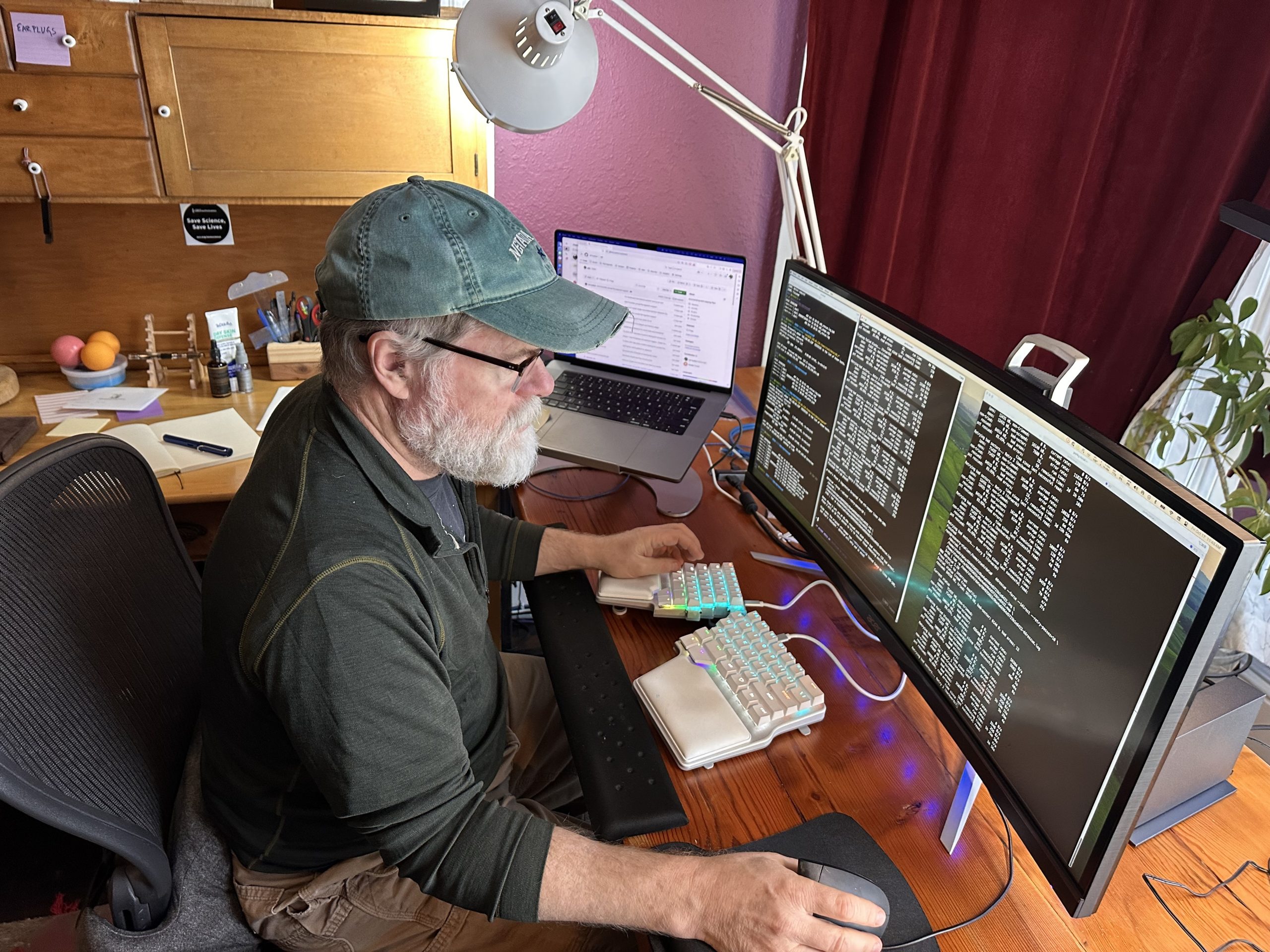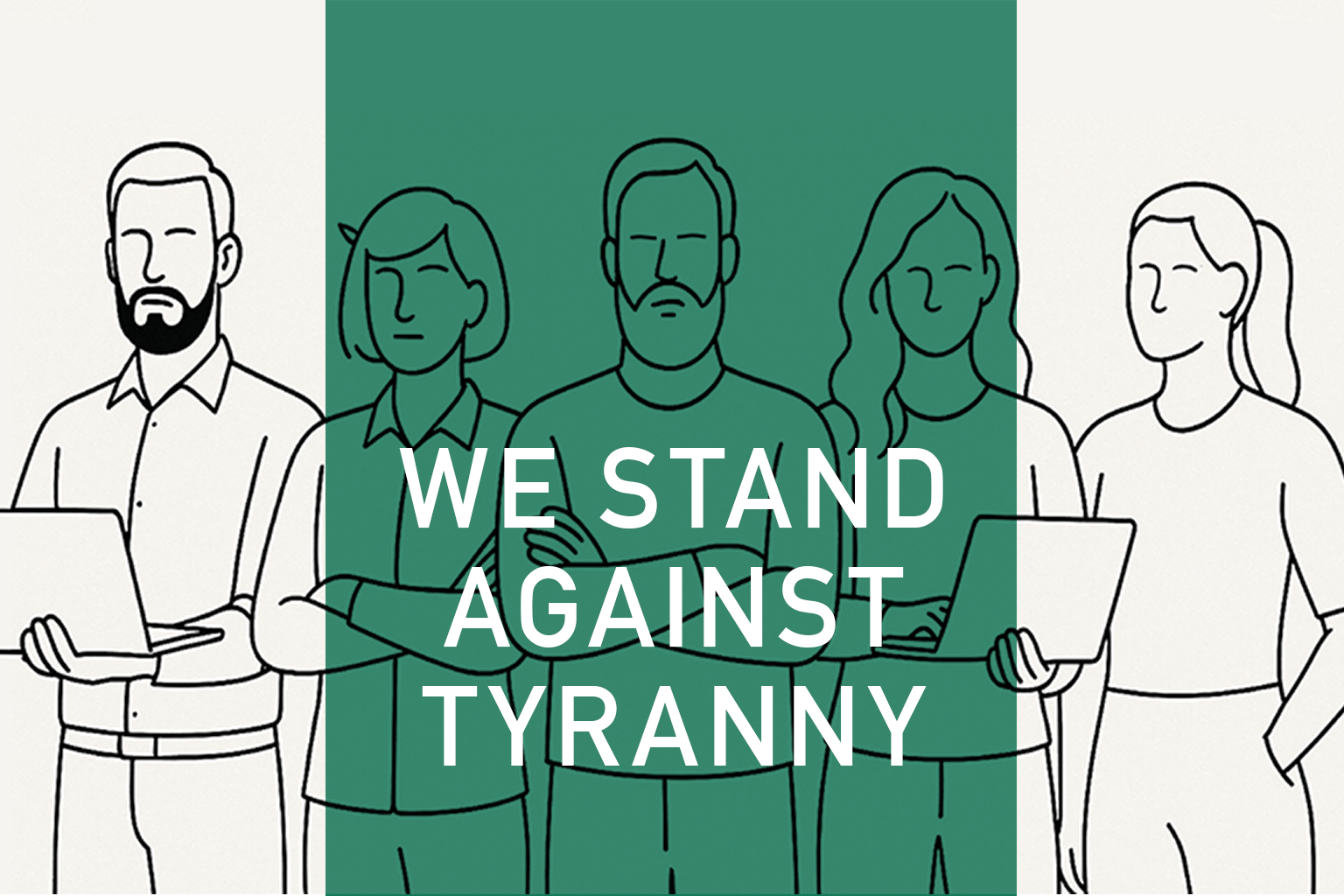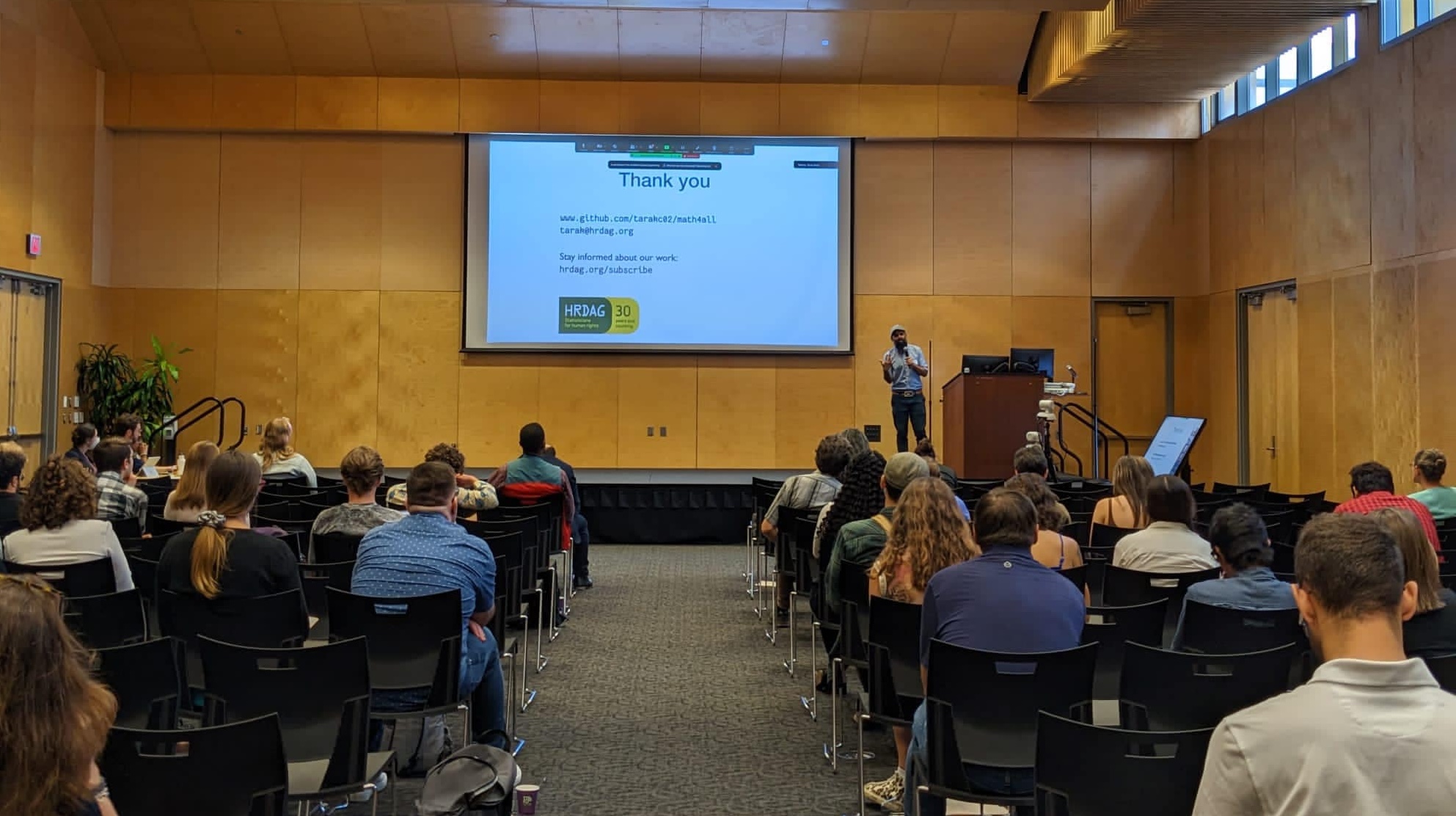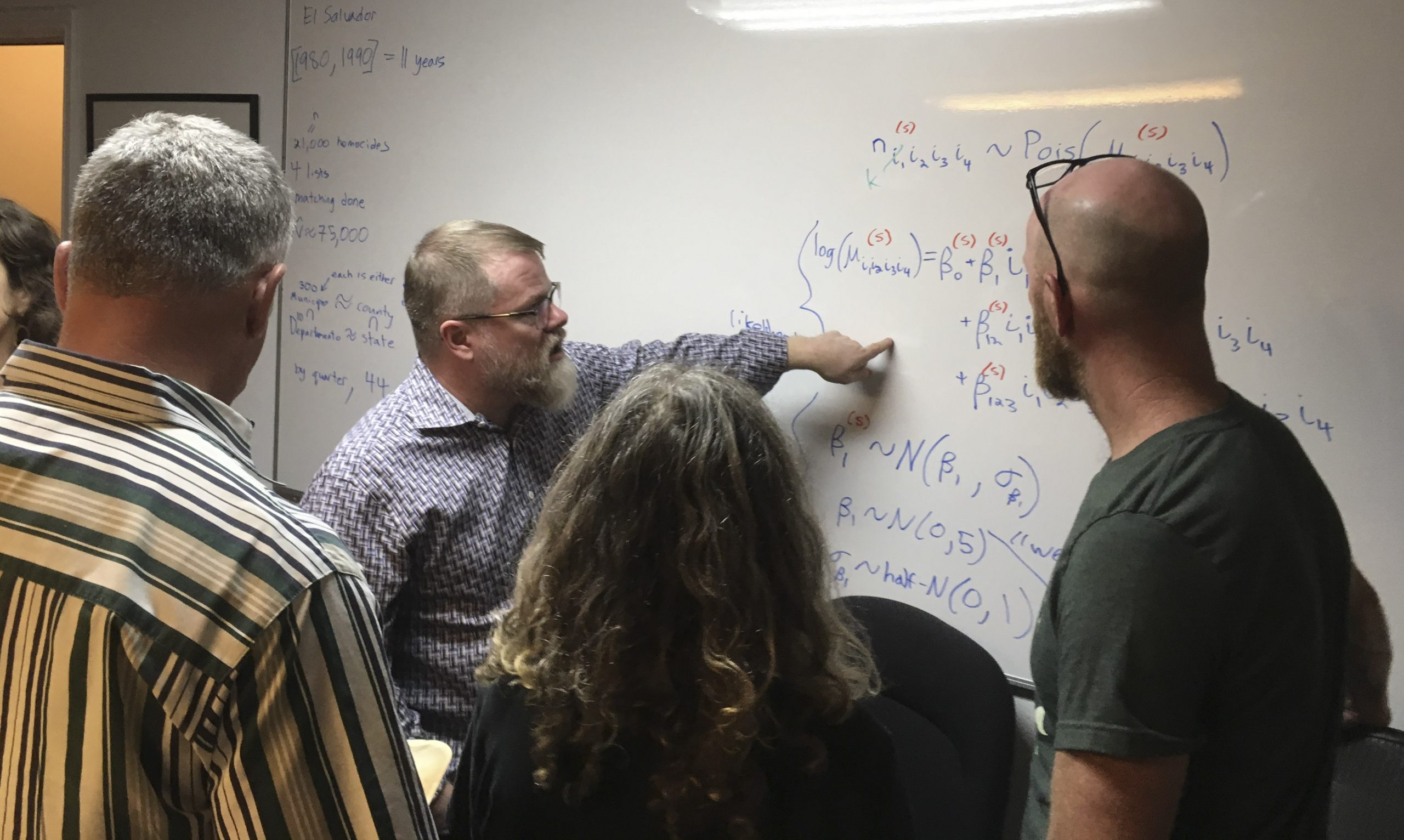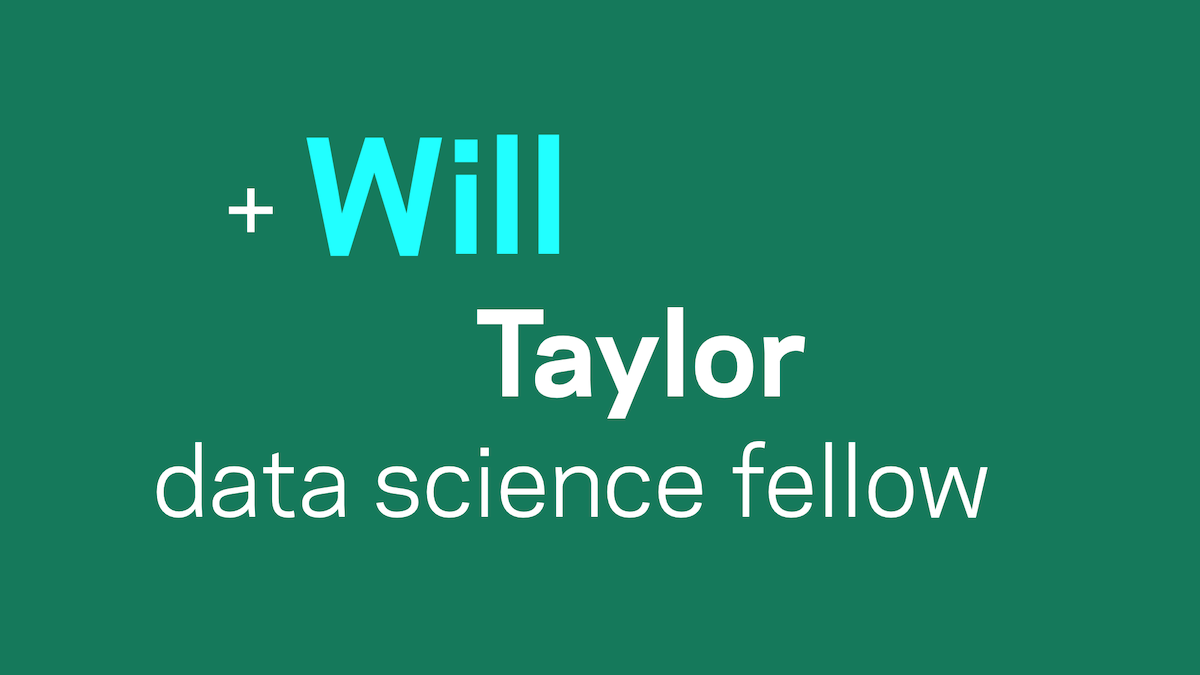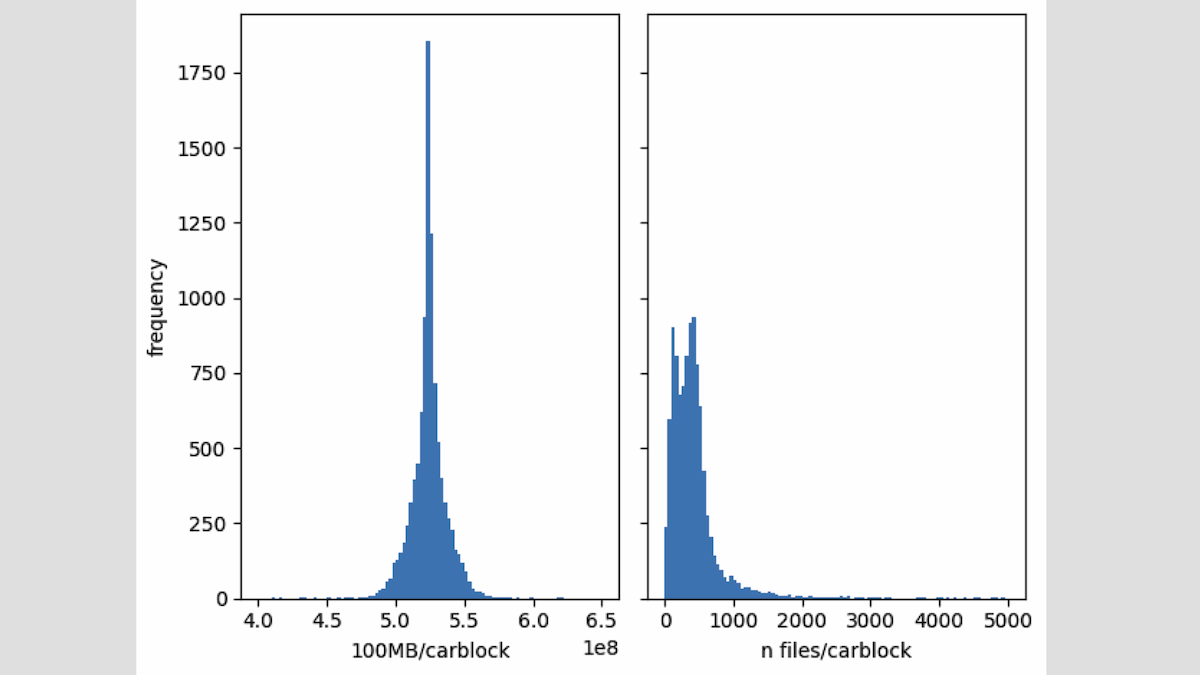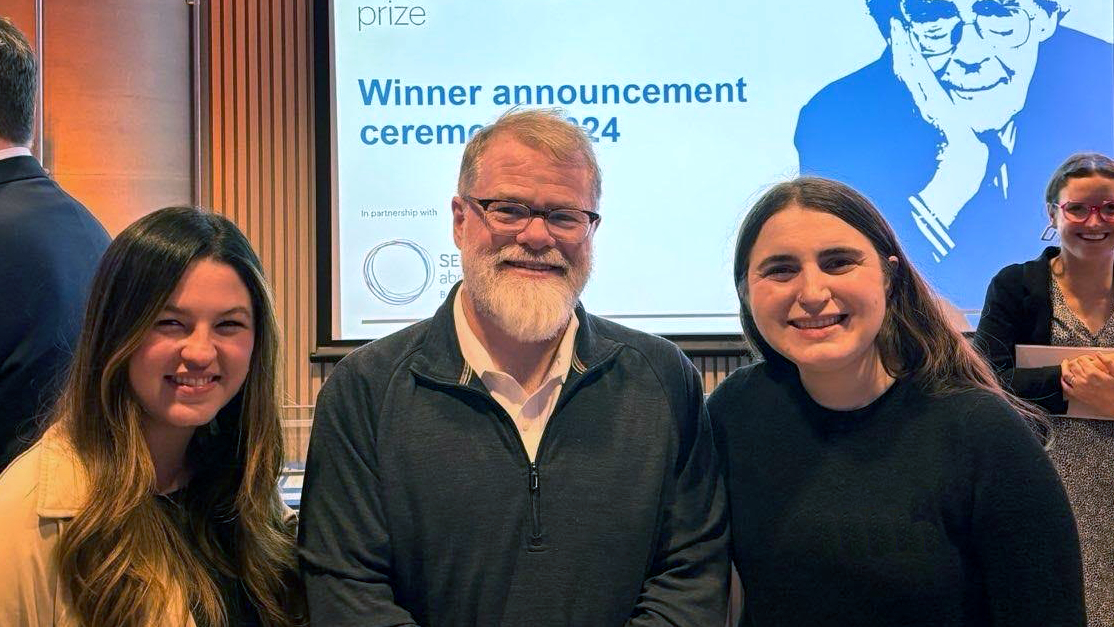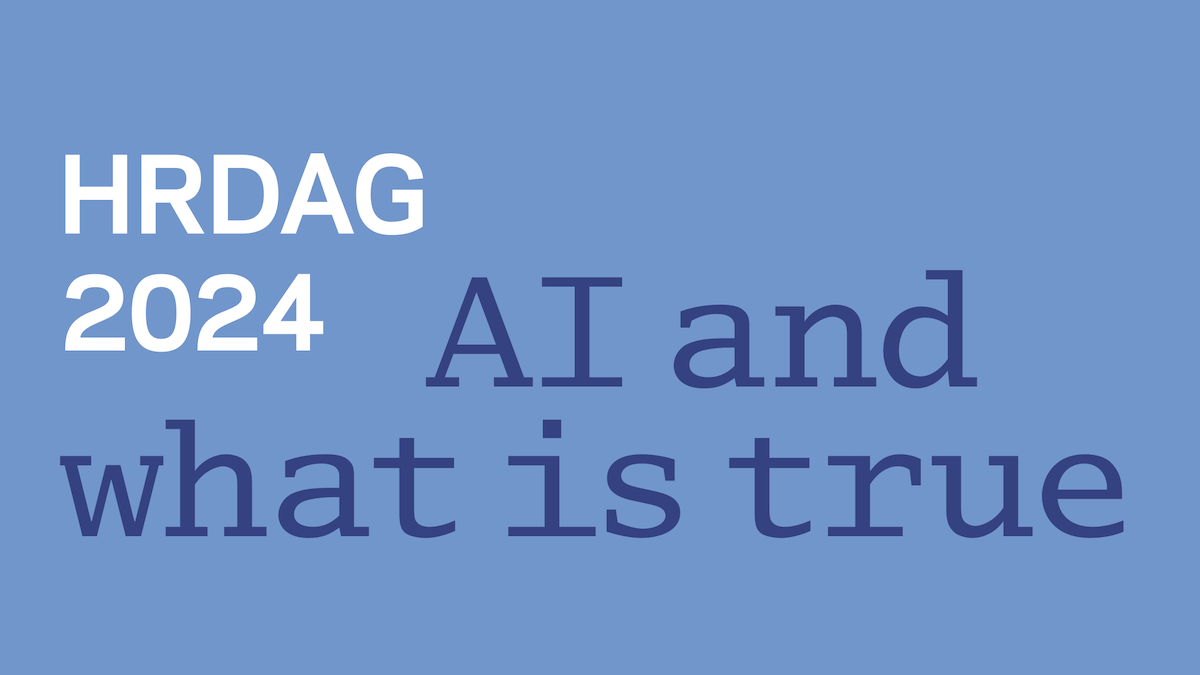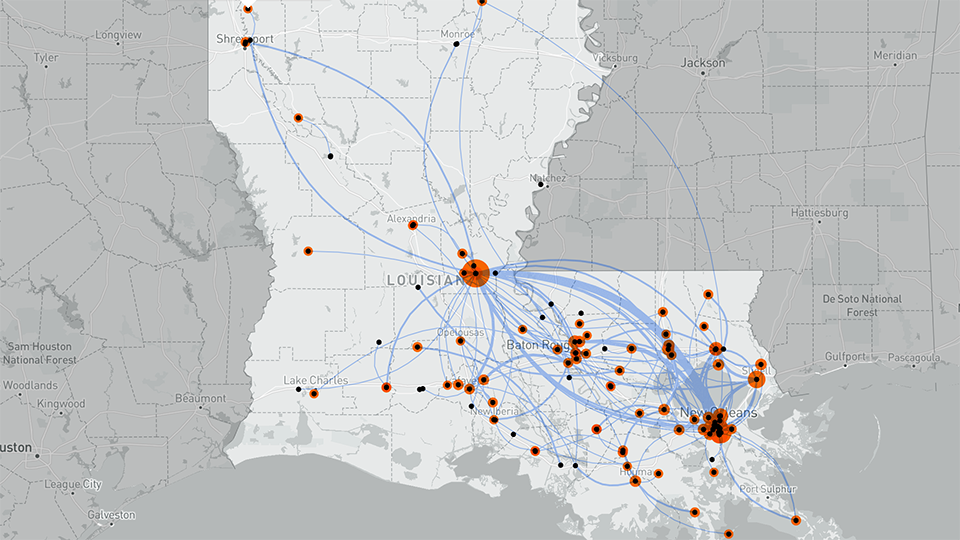Yes, Your Dataset is Probably Biased
As statisticians, we bring skepticism to every dataset and every conclusion. When we make conclusions about a research topic, we offer up our evidence, reasoning, and calculations for review. Most importantly, we talk about the degree of confidence we have in our findings and how we can use scientific models to improve that confidence.
Watch Now: The Wandering Officer—New Databases for Police Accountability
What does justice look like for communities struggling with police violence?
For Cat Brooks, Co-Founder of the Anti-Police Terror Project (APTP), true justice isn’t possible. "There is no such thing as justice when we're talking about police terror and the stealing of our community members' lives,” Brooks said at a recent event co-hosted by the Human Rights Data Analysis Group, APTP, Berkeley Institute for Data Science (BIDS), Community Law Enforcement Accountability Network (CLEAN) and the National Police Index (NPI).
Hosted at Kinfolx in Oakland, CA, the event ...
Teach In on Data for Police Accountability | January 22, 2026 in Oakland, CA
For decades, law enforcement agencies across the United States have operated behind walls of secrecy—particularly when officers abuse their power or use lethal force. That opacity has real consequences for communities seeking truth, justice, and accountability.
On Thursday, January 22, 2026, HRDAG is proud to co-sponsor The Wandering Officer: New Databases for Police Accountability, a public event in Oakland exploring how data, journalism, and community organizing are reshaping what’s possible for police accountability in California and beyond.
Register here. ...
Trump Administration’s Sanctions on the ICC are an Attack on the Rule of Law
The Trump Administration has issued additional sanctions against judges of the International Criminal Court (ICC), further endangering accountability and justice worldwide. Attacks on the ICC were a key factor in HRDAG’s decision to speak out against tyranny in the U.S. late last year, and this ongoing pressure threatens the Court’s ability to do its vital work.
HRDAG condemns these sanctions against the International Criminal Court and calls on the Trump Administration to respect and uphold the independence of the Court.
The ICC investigates and ...
Podcast: Dr. Megan Price Explores Fact Finding in a Failed State
How do scientists and statisticians stand up to authoritarianism, especially when it happens in their home countries?
All of the ways we remember: How data scientists hold memory with and for survivors
Those most vulnerable to state violence are already marginalized and undercounted, their experiences ignored or minimized in official sources. To avoid perpetuating these harms in our analyses, we have to find ways to incorporate unofficial data sources and all of the ways we remember.
The Data are Clear: Public Engagement Improves AI Science
A lot of scientists and AI developers think that involving affected communities in AI research is probably the right thing to do, ethically. But they hesitate because they fear the messy unpredictability of human participation. They worry that even if human participation is the moral choice, it could degrade the science.
New Research Shows Community Engagement Improves the Validity and Reliability of Artificial Intelligence
AI is transforming the way scientists analyze complex data.
Watch now: “In the Face of Tyranny,” a Webinar with HRDAG
The Human Rights Data Analysis Group recently hosted a conversation about the significant threats facing human rights researchers and scientific NGOs in the United States. We are posting the first part of this conversation on YouTube so that others may watch:
In addition to this community conversation, HRDAG put out a statement outlining our specific concerns about the targeting of the human rights and research community. Read the statement and our blog post.
As HRDAG Executive Director Dr. Megan Price explained, this is not a departure for HRDAG. As a scientific ...
HRDAG Takes a Stand Against Tyranny in the United States
by Patrick Ball and Megan Price
Today the Human Rights Data Analysis Group (HRDAG) publicly denounces the growing attacks on science and human rights in the United States. We reaffirm our commitment to using rigorous scientific research and data analysis to uphold accountability for perpetrators of violence—particularly when those perpetrators are in power.
For decades, HRDAG has sought accountability for those who have committed war crimes and genocide around the world. We have researched patterns of genocide, torture, disappearances, and other forms of state-...
Donate to HRDAG with a Donor Advised Fund
HRDAG is pleased to accept donations to our nonprofit via Donor Advised Funds. We’ve published step-by-step directions to make donating through a DAF simple and fast. Check out the directions now or contact us at info@hrdag.org if you have any questions.
October 9 is Donor Advised Fund Day—a recently established awareness day that encourages DAF holders to activate their funds by recommending charities to receive support. You can participate by donating to HRDAG via a Donor Advised Fund or read on to learn more.
What is a Donor Advised Fund?
A Donor-Advised ...
Introducing Structural Zero, HRDAG’s New Monthly Newsletter
I want to invite you to check out HRDAG's new newsletter, Structural Zero. It’s written by me and my colleagues Megan Price, Bailey Passmore, Tarak Shah, and Maria Gargiulo. Each month, one of us will write about a mathematical or scientific concept we use in our work and how it can be applied to understanding the world. We’ll offer some of the real world examples we've come across, including the times when we or our partners worked to collect and process data in very dangerous situations. We’ll talk about some of the key insights we've uncovered through our work, ...
Millions of Pages of Police Use-of-Force Files Available through New Searchable Database
A new, public database will bring more oversight to police abuses in California—and may serve as a model for police accountability for other states across the country.
HRDAG was part of a coalition behind the recently-launched Police Records Access Project. The new searchable database includes ...
Podcast: Dr. Patrick Ball on Using Statistics to Uncover Truth
Dr. Patrick Ball recently visited the Plutopia News Network podcast for a wide-ranging, inspiring conversation about his work for the Human Rights Data Analysis Group.
Patrick spoke about how he first discovered human rights work during his time in El Salvador with the Peace Brigades International. That led to his ongoing work as a statistician and computer programmer working to assess and analyze human rights violations. He also unpacked some common statistical techniques used by researchers at Human Rights Data Analysis Group, such as multiple systems estimation, ...
HRDAG Welcomes New Data Science Fellow
Our newest Data Science Fellow, Will Taylor, is currently a doctoral student in political science and public policy at the University of Michigan.
Announcing New HRDAG Advisory Board Member
Cynthia Conti-Cook came on board in March, 2025.
Trove to IPFS
IPFS is a peer-to-peer storage network that promotes the resiliency, immutability, and auditability of data. This README explains code written to shepherd the files from janky external USB drives to IPFS.
The John Maddox Prize for Patrick Ball
Congratulations to Patrick on this well deserved award!
HRDAG’s Year in Review: 2024
In 2024, HRDAG maximized AI's strengths to support partners.
How Structuring Data Unburies Critical Louisiana Police Misconduct Data
In Orleans Parish, Louisiana, home of New Orleans, 78 percent of wrongful convictions have been linked to a police officer’s failure to share exculpatory evidence with the defense. This is a rate more than double the national average.But while these actions, or any misconduct, by law enforcement personnel may be recorded officially, the data may be difficult to use or find. Depending on a parish’s resources, the data may be archived in a non-digital format, for example, on paper.
Innocence Project New Orleans (IPNO) has as its mission the overturning of wrongful ...



